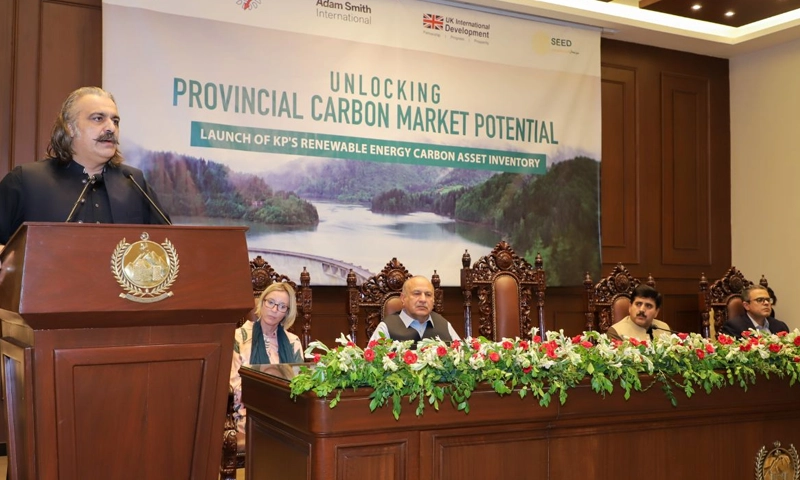- Web Desk
- Sep 23, 2025
KP leads the way in climate action with massive carbon credit potential
-

- Web Desk
- Jul 23, 2025

PESHAWAR: Khyber Pakhtunkhwa (KP) is emerging as a national leader in climate action, with its forest and renewable energy sectors poised to earn over Rs32 billion ($113.1 million) annually through carbon credit trading, according to official documents.
A recent feasibility study by the forest department revealed KP’s ability to market 11.8 million carbon credits through afforestation, improved forest management, and REDD+ initiatives across more than 2 million hectares of land.
These efforts alone could generate $113 million annually by tapping into the global voluntary carbon market, which is expected to reach $40 billion by 2050.
Also read: COP30 countdown: Leaders urge stronger climate action
To support this green transformation, KP launched it’s first-ever Carbon Asset Inventory in collaboration with the UK-funded SEED Programme. The inventory maps renewable energy projects under the Pakhtunkhwa Energy Development Organization (PEDO), evaluating their eligibility for carbon credits and International Renewable Energy Certificates (I-RECs).
Chief Minister Ali Amin Gandapur hailed the initiative as a “historic milestone” toward sustainable economic growth, saying it reflects KP’s commitment to clean energy, climate resilience, and attracting global green finance. PEDO’s renewable energy portfolio, which includes hydropower and solar projects, has already qualified for leading international standards like Verra, Gold Standard, and the Global Carbon Council. The potential to avoid 5.4 million tonnes of CO₂ annually could generate up to 11.9 million I-RECs, opening substantial revenue opportunities for the province.
In another significant step, PEDO signed an agreement with the Pakistan Environment Trust to register with Evident—the global I-REC registry—formally entering international renewable energy markets with five projects in the first phase. KP’s forest cover has already increased by 6% due to landmark initiatives like the Billion Trees Afforestation Project and the Ten Billion Trees Tsunami Programme.
The forest department is now targeting barren land, especially in the southern and tribal districts, for fresh plantations to further boost green cover and carbon sequestration.
The KP government’s dual approach—expanding forests and clean energy—sets a strong example for climate-smart development. With strategic planning, international partnerships, and a clear vision, the province is well-positioned to turn its natural resources into a powerful engine for sustainable growth.




